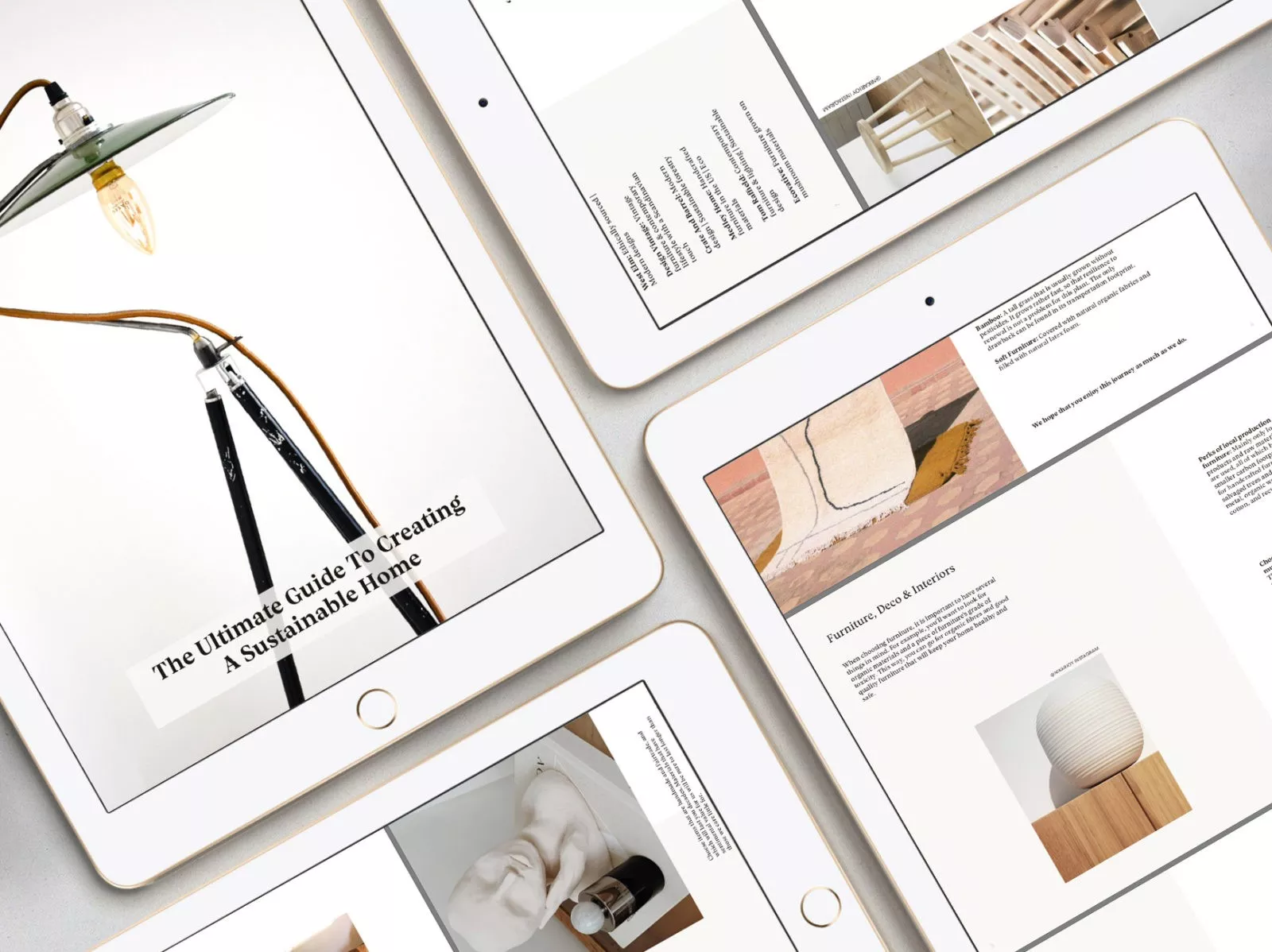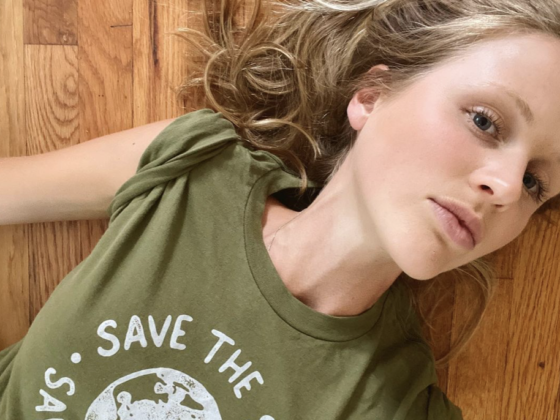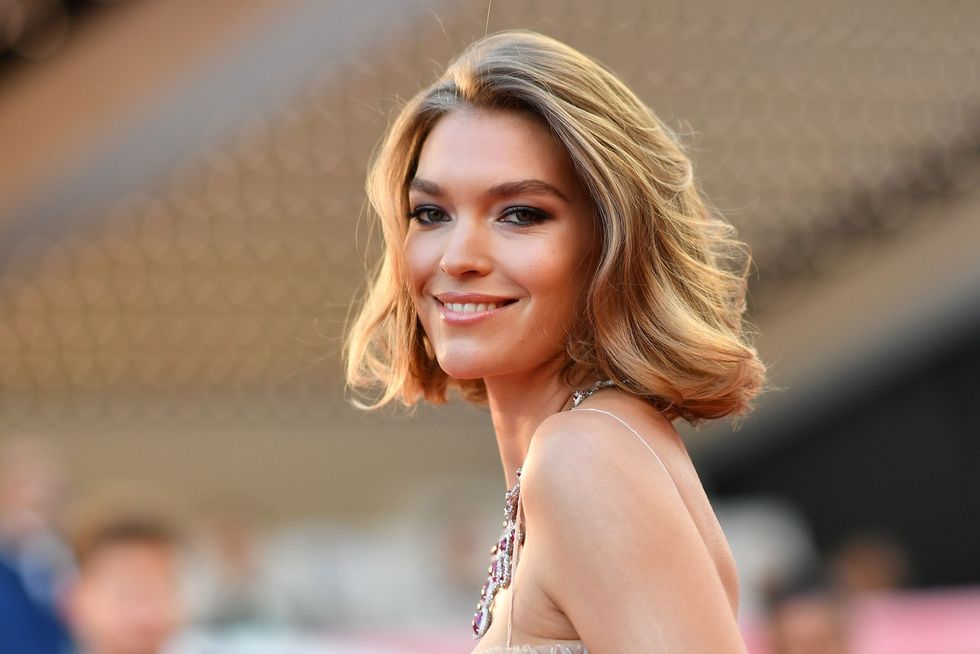
By Susan Bender
This decade, Arizona Muse is cutting her own unconventional path, her journey has seen her gracing the covers of Vogue magazine, shooting campaigns for Saint Laurent Paris & Fendi to walking the catwalks for Chanel, Louis Vuitton and Stella McCartney.
Arizona is now just as likely to be seen walking the streets campaigning for climate change as she is in front of the camera. We sat down to talk about sustainability, her passion for biodynamic farming, and the importance of using her voice to induce positive change.
Could you tell us about your journey and the catalyst that inspired you switch to a sustainable lifestyle?
Growing up in Santa Fe, New Mexico, I was surrounded by the environmental movement, people living there are very conscious and aware. I kind of misunderstood it all and thought ‘There are so many environmentalists, I’m going to strike a new path and do something else’ (in hindsight I can’t believe how backward that was). I became a model, it wasn’t something I consciously thought about, it just happened to me.
Were you not overwhelmed by all this information?
I wanted to know more, to understand where all this waste was going to and coming from. My clothes were made from all these materials that I don’t know the first thing about. I knew cotton came from plants and wool came from sheep, but that was about it.
I felt starved of information, I didn’t go to university because I was modelling, so I was ready to learn. This was something I can learn and be really passionate about, it was so interesting. My life now is enriched and enlightened in so many ways, I love it.
How do you balance motherhood, modelling and sustainable advocacy?
It all fits together. I don’t get it right all the time, I still have to fly on airplanes and have an environmental impact, that’s the reality of living in a city right now. I do buy food that’s wrapped in plastic, because it’s not often possible to find it otherwise.
Motherhood and sustainability fits together well, I breastfed my daughter in the beginning, I now feed her organic food and use washable squares of organic bamboo instead of disposable wipes.
All coincidentally have the lowest impact possible and is the healthiest for you baby. It’s just forethought, it doesn’t add that much into your day.
What advice/steps would you suggest to someone interested in starting their journey toward a sustainable/clean lifestyle, but finds it hard to sort through all the information?
The first step is to connect yourself with nature, so you can understand why we’re doing all this. I’m not just using natural cleaning supplies because they’re less toxic for me, my skin and lungs, I’m doing it mostly because of the plants these cleaning products are made of, cleaning products have direct access to rivers; the waste is usually just spilled into it. The other cleaning products are made of severely toxic chemicals that have a deep impact on river life, bacteria and all organisms.
It’s really important to learn about indigenous wisdom & cultures because they’re so easy to forget about. It’s not about buying the most expensive thing to have a more sustainable life, it’s looking at it from the view of the people that have lived on the land forever and admiring them. It’s a more beautiful way of life than mine and that’s what we need to see.
Luckily it’s quick to change the way you think, all it takes is picking up a couple of books, there’s a great one called ‘Ceremony’, it was written in the 70’s and really changed the way I think. I’ve read several other books by Native American authors just to change my mindset.
Don’t get bored reading a whole scientific report, they can be rather dry. Dabble in reading the executive statement at the front of the report, it’s dense with information and only a couple of pages so you’ll really get to know what’s going on. I would suggest having fun with it, watch documentaries, they’re amazing now and you can learn so much.
Being sustainable and having a clean lifestyle can sometimes be seen as a bit of a luxury. Do you think this lifestyle is attainable for everyone?
If I’ve learned anything in the last 4 years, it’s that environment and climate change are an issue of diversity (racial, gender and age). I’ve spent a large amount of time looking into this, you cannot talk about one without the other, they go hand in hand. If we had a diverse society for the last 200 years we would not be in this position of climate change. Just not!
There are food deserts, especially in places like the USA, people don’t have access to healthy food; that’s grown in an environmentally friendly way. I think it’s a huge, huge problem, I would say
‘If you are in a financially comfortable position, it’s your responsibility to live a more sustainable life”.
The burden should be taken off the shoulders of people who cannot afford it, because it’s not their fault. It’s a big conversation that every government needs to have. If you look at capitalism and the way economics functions it’s keeping people down.
Your work involves a lot of travel, do you request that your fashion footprint is offset and how?
I’ve never requested that before, but what I’ve started to do recently on trips is find a biodynamic farm near the location where I’m staying. I try to visit the farm, which personally feels like I’ve justified the carbon emissions to get to that place. I would go and volunteer on these farms whenever I could with my children and am now combining visits with work trips.
My most recent trip to Kenya was amazing, I was there with a conservation charity as the face of their campaign, the first time I’ve been asked to do that. I visited a biodynamic farm based in Nairobi on a school, they had 330 students attending, which is quite a lot of people. All of their lives are being completely changed by going to this school and 80% of them are attending it for free.
Do you find there’s a compromise between your ideals and working in an industry with such a profound negative impact to the environment?
Yes, but I also feel very lucky to be in this industry, I have a voice and people listening. There’s a chance I might be part of this movement that becomes strong enough to persuade the whole industry to change. That’s why I want to stay in the industry, even though it is polluting and awful.
We only have this one lifetime, whether you believe you come back again or not. Right now, you being you; how do you want to spend it? That’s a question I ask myself a lot, just to make sure I’m still answering that question. Am I spending my life how I want to? That’s really important, we’re never going to do good stuff if we’re answering that question with a ‘No’.
Being in the fashion industry is important for me right now, a big part of what I’m doing is trying to shed light on the different ways to do things.
There are amazing brands and incredible businesses along the fashion supply chain that are doing things in a much better way than others. I really feel positive about this, there are so many things to celebrate right now, even though we’re not there yet.
You’re also an avid conservationist, what animal species do you have an affinity to and why?
The tiny ones that no-one knows about, I’m into saving the bigger ones as figureheads for everything else that exists alongside them. I don’t like this thinking that we have to save the elephants, rhinos and lions because the hedgehogs are equally as important; we don’t need to go all over the world.
What we need to do is save the animals right next door, all of them: bugs, slugs, butterflies and moths because they’re all really important. We need to start understanding the whole balance of this world.
What goals/changes do you hope to achieve personally?
Spending much more of my time being in nature and experiencing all that you can get from nature.
I recently listened to an audiobook ‘The Nature Fix’ by Florence Williams, she’s a journalist that was interested in the positive effects that nature has on us. She went all over the world interviewing scientists who were working on that question. It’s fascinating and has serious positive effects.
Could you give an example of how you’ve used the Four R’s (Resale, Reduce, Re-use, Repair) of fashion recently:
Resale – I rent clothing from My Wardrobe HQ or By Rotation. Try to go with peer to peer rental as some rental websites are popping up and getting caught up in new drops every week etc… Rental is all about using stuff that is already there. Peer to peer rental is the best because you’re renting from someone else nearby, that doesn’t want to wear it right now, and also a lot cheaper.
Reduce – The amount of plastic. I buy from smaller grocery shops that don’t wrap in plastic or smaller farms, farm shops/farmers markets are the best. We now use solid shampoo, conditioner and bar soap, instead of having liquids in a plastic bottles. Our bar soap comes with no packaging at all from Neals Yard and Beauty Kubes pressed powder cubes shampoo & conditioner that comes in a very small recyclable paper box.
Re-use – Baby stuff, handing baby clothing/toys around to friends all the time, and receiving it.
Repair – A pair of jeans that didn’t fit perfectly, I wear them all the time now.
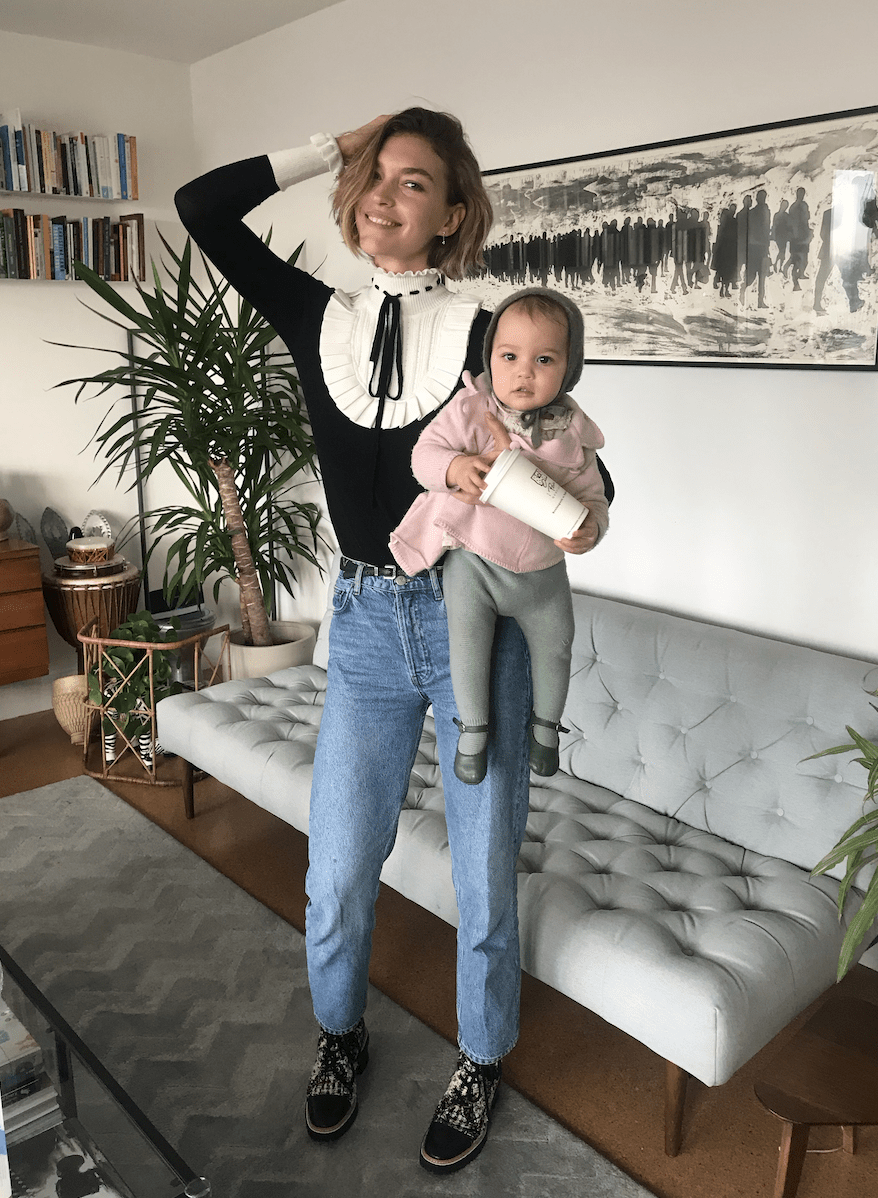
Your favourite 3 products:
Beauty – Dr Haushkha products.
Clothing brands – Reformation & Gabriela Hearst.
Household products – Mangle and Wringer bathroom balm.
Could we rate the #AWearNesss of your outfit today and score how many pieces are sustainable?
Jumper – Alice Temperley No
Jeans – Reformation (organic cotton) YES!
Boots – Tory Burch No
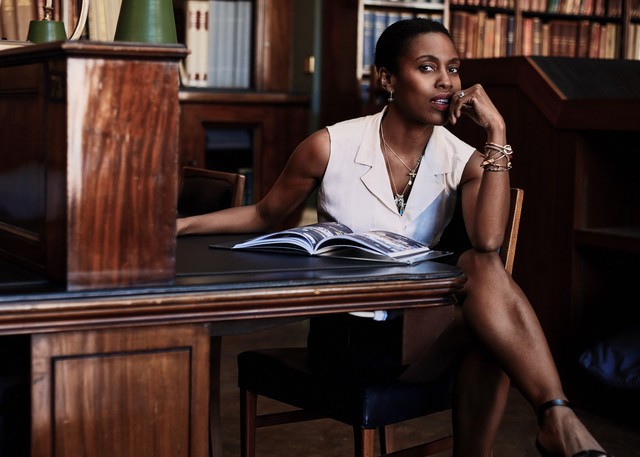
Susan Bender
Susan is a creative/visual director, editor, freelance stylist and a contributing editor with British Vogue. She has worked extensively in the fashion industry and is a luxury brand specialist. You can follow her work on her IG account @kitty_su

